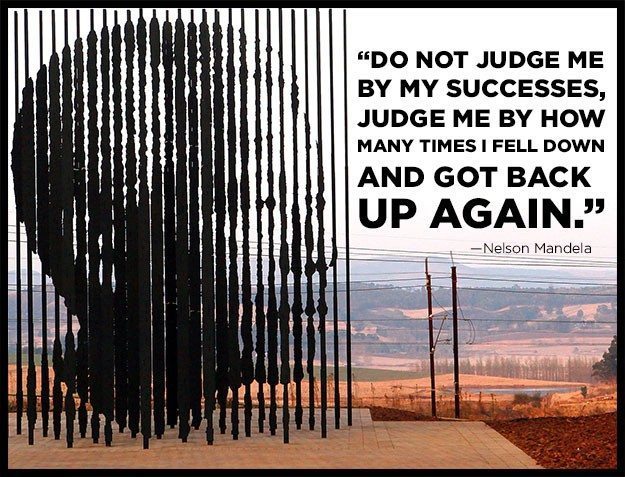Nelson Mandela was a renowned South African peace, human right activist, revolutionist and a former South African president who didn’t care much about his background and safety but stood against the South African Apartheid system of government when it was at its peak and eventually succeeded in bringing the much-desired change and mutual respect. He died on the 5th of December, 2013. He was popularly known as “Nelson Mandela” but there are several other names he was known by for which he surely left much deeper meanings to; one of those was MADIBA.
The True Meaning and Origin of Madiba
Madiba is the name of the clan from which Nelson Mandela came to be. In South African belief, the name of a clan is much more relevant and important than a person’s surname. The reason is because a clan’s name makes significant reference to the ancestor from which the individual came into existence. In South African history, Madiba was the name of a prominent Thembu chief who was popular in the 18th century as a ruler of the Transkei hence it is generally considered very polite and respectful to use someone’s clan name.
Madiba’s Popularity and Political Struggles
Outside, historical associations with the name Madiba, there are many other reasons why he was called Madiba: Nelson Mandela was a political prisoner in South Africa for twenty-seven years before the turning point of his life where he rose to the presidency.
The ascendancy to the top seat of the country changed all spheres of his society and even those of the nations beyond; he became the first black president in South Africa. The country had been ruled by segregation laws which came to end in the early 90’s after a long battle for freedom. He was the flag bearer of the African National Congress (ANC), the political party that had rallied the blacks against segregation rules for decades. The apartheid government had banned all political parties in 1960; this led to the arrest of Mandela and his detention and subsequent jail for life being charged with treason. Mandela served his prison term that was meted out by an impartial court in the Reuben Islands. On the contrary, this ostensibly made him gain more popularity, making him the greatest weapon that the black people held as a beacon of hope.
See Also: Best 25 Nelson Mandela Quotes
Not only has Mandela’s story been based on his political struggles but also on his contribution to the welfare of mankind globally. South Africans hold him in respect and have a penchant for referring to him as Madiba, also Tata, which embodies a ‘father’ among the Xhosa people. Thus, he was referred to as “father of the nation” because of his substantial role in the pre-independence political resistance and the post-apartheid contributions in the wake of freedom. The racial segregation government had tarnished his name with reprehensible acts of terrorism and as a communist.
Notwithstanding his suffering in political persecution, he received global acclaim for his vehement opposition to colonialism and apartheid. Before his death, he received more than two hundred and forty international honours, key among them: Soviet Order of Lenin and he was also among the very few South Africans to receive the Nobel Peace Prize which was bestowed on him in 1993. Due to the long struggle that led to the lifting of the ban against the ANC by F.W. de Klerk in the early 90’s, Mandela was released from jail and a wave of freedom began to sweep across South Africa.
Madiba’s Books, Creativity, and Talents
Mandela had numerous talents, he also did a number of works that are still very much appreciated in the global arena of literary materials, the Long Walk to Freedom reveals a lot about him. For example in the book, he states that his teacher coined the term Nelson for him on the first day of school.
When he was elected president, he shocked many people due to his stand for national cohesion and an end to discrimination that had ruled South Africa for decades. The ruling party known as Government of Unity was initiated by Mandela in a bid to avoid ethnocentric, racial and political tension that was rife on the walk to freedom. This was backed up by the Truth and Reconciliation Commission that was mandated with delving into human right violations.
Mandela’s role as president was intricate due to the balance he was compelled to strike between all the people. On the one hand, the famished and discontented blacks who had suffered for long under the manacles of segregation; the Boers sought more rights while the whites clamoured for equal rights. Unlike his counterpart in Zimbabwe, Robert Mugabe, who chooses to throw out all settlers to cripple the economy, his approach to administration was feasible.
Through the efforts of Mandela upon the joyous daybreak to emancipation, he spearheaded the introduction of land reforms, measures to curb poverty and an extension to health care services. On various international platforms, he acted as Mediator and peacemaker. For instance, he led the military intervention that was necessitated by deadly and horrible fighting and arbitrated between Libya and the UK dispute on the Pan Am Flight 103 Bomb trial. He was also a distinct African president who shunned a second term in favour of the vice president in a continent where men rule for decades through undemocratic tactics. On his retirement from public life, the former president became a key player and elder statesman whose focal point was curbing impoverishment of vulnerable groups and combating the spread of HIV/AIDS.
There are many reasons why Nelson Mandela was called Madiba, and other names such as the “father of the nation”. He gave his life for the freedom of South Africa, suffered for the course and demonstrated deep patriotism by shunning the deplorable acts of many African leaders. Mandela was an international statesman and had earned the respect through his dedication, commitment, and tenacity.
